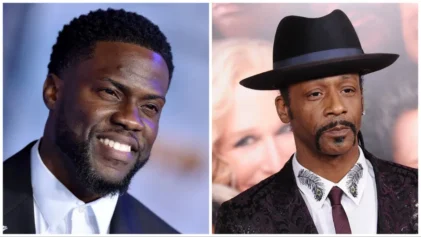A U.S. district judge in Illinois has dismissed a police training firm’s suit accusing Netflix and director Ava DuVernay of making “false and defamatory” remarks in the award-winning miniseries “When They See Us.”
The four-part drama, which tells the true-life story of the Central Park Five, was at the center of a lawsuit brought last year by the firm now behind the dissemination of the techniques taught by ex-cop-turned-consultant John E. Reid. In it, Chicago-based John E. Reid & Associates — Reid died in 1982 — claimed the series disparaged the practice known as the Reid Technique, an interrogation and interviewing method pioneered by Reid and his company.

The technique started being developed in 1947, according to the company’s website and is “now the most widely used approach to question subjects in the world.”
Reid & Associates specifically took issue with a portion of dialogue spoken during the fourth and final episode of the acclaimed series between prosecutors and an NYPD detective involved in coercing confessions from the five teens — Antron McCray, Yusef Salaam, Kevin Richardson, Raymond Santana and Korey Wise.
“You squeezed statements out of them after 42 hours of questioning and coercing, without food, bathroom breaks, withholding parental supervision. The Reid Technique has been universally rejected. That’s truth to you,” a composite prosecutor character tells NYPD Detective Michael Sheehan in one scene in the series.
The detective replies, “I don’t even know what the f—ing Reid Technique is, OK? I know what I was taught. I know what I was asked to do and I did it.”
The firm called the series’ characterization of his technique “defamatory,” arguing in a 41-page complaint that “Defendants intended to incite an audience reaction against Reid for what occurred in the Central Park Jogger Case and … cause a condemnation of the Reid Technique.”
U.S. District Judge Manish S. Shah argues otherwise.
In a Monday decision, Shah dismissed the Reid firm’s complaint on grounds that the miniseries is protected by the First Amendment, adding “that DuVernay doesn’t have the requisite contact with the state of Illinois for him to establish personal jurisdiction,” according to The Hollywood Reporter.
“To ensure that public debate does not suffer for lack of ‘imaginative expression’ and ‘rhetorical hyperbole,’ the First Amendment protects from defamation liability any statement that ‘can’t reasonably be interpreted as stating actual facts,'” according to Shah’s ruling. “When the prosecutor tells Sheehan that the Reid Technique has been ‘universally rejected,’ he is using the kind of loose, hyperbolic rhetoric that is a protected part of the nation’s discourse.”
The judge added: “‘Universally’ is hyperbolic and the prosecutor can’t be taken literally to assert that all intelligent life in the known universe has rejected the technique — which means his statement is an imprecise, overwrought exclamation.”
In his opinion, Shah further notes that the statement was uttered by a fictional character, during a fictionalized conversation. He added that although the the miniseries “refers to the Reid Technique and links it to unreliable confessions, it doesn’t reasonably and in context paint the technique with the defamatory brush.”
The First Amendment protections have also rendered Reid’s remaining claims of false light, unjust enrichment and commercial disparagement baseless, the judge ruled.
Shah’s decision signaled a victory for Netflix and DuVernay, who are still facing a separate lawsuit over the “When They See Us” series. Last week, former New York prosecutor Linda Fairstein sued the pair for painting her as a “racist” villain in the show.


